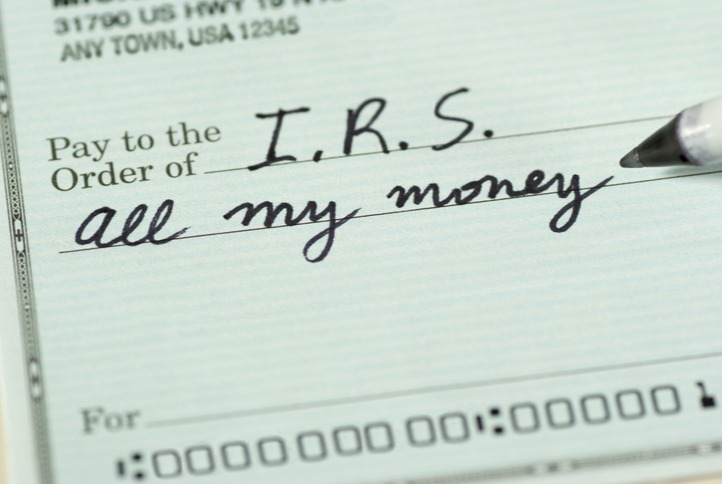When the IRS Marks You for Collection: Understanding the CP504
Opening your mailbox to find a CP504 Notice of Intent to Levy means one thing: you've moved from the IRS's "gentle reminder" phase to their active collection target list.
This critical notice signals a turning point in your tax situation. While the clock is ticking, you still have valuable options—but only if you act promptly. The strategic approach is two-fold: first, attempt to resolve the issue directly while you still can. If that doesn't yield an acceptable solution, you'll have another opportunity when the next notice arrives with formal appeal rights.
This two-step approach gives you maximum leverage. Wait too long, however, and you'll find yourself with just one final chance in the appeals process—succeed or face immediate collection actions.
Should you miss that final appeal window, the IRS wastes no time. They'll begin seizing funds directly from your paycheck and bank accounts without further warning. The moment to address this situation is right now, not tomorrow.
Hundreds of taxpayers in your situation have found relief through our specialized services. Don't face this challenge alone—contact our office today for expert guidance through this complex process.
What Does a CP504 Notice Mean?
The Notice CP504 (also referred to as the Final Notice) is mailed to you because the IRS has not received payment of your unpaid balance. This notice tells you:
In most other situations, before the IRS issues a levy on your property or rights to property, they will send you a notice that gives you the opportunity to request a Collection Due Process (CDP) hearing, unless you have already received one.
Serious Consequences of Ignoring a CP504
If you choose not to respond to the Notice CP504, the IRS may send you a collection notice requiring payment with your right to request a Collection Due Process hearing (your appeal rights via a Notice of Intent to Levy and Your Notice of a Right to a Hearing), before taking further action to collect the balance due.
This further collection action could include the IRS levying or seizing:
This notice also explains the possible denial or revocation of your United States passport for serious tax delinquencies.
How Advanced Tax Solutions Can Help with Your CP504 Notice
Receiving a notice from the IRS can be daunting, and understanding the specifics of each notice is crucial to effectively addressing it. The CP504 Notice demands immediate attention.
How Advanced Tax Solutions Can Guide You Through This Process
When facing a CP504 Notice, timing is everything. Our specialized team at Advanced Tax Solutions stands ready to help:
The High Cost of Inaction
Turning a blind eye to your CP504 Notice is a risky gamble that rarely pays off. The IRS has powerful collection tools at their disposal—bank account seizures, wage garnishments, and property liens among them. These actions can devastate your finances and take years to recover from.
At Advanced Tax Solutions, we've spent decades helping taxpayers regain control of their financial lives. Our proven strategies and deep understanding of IRS procedures can make the difference between financial disaster and manageable resolution.
Time is a critical factor in tax resolution cases. With each passing day, your options narrow while penalties and interest continue to grow. By contacting Advanced Tax Solutions immediately, you maximize your chances for a favorable outcome with terms you can live with.
Don't let fear or confusion paralyze you into inaction. Reach out to our team today at [phone number] for a confidential consultation, and take the first step toward putting these tax problems behind you for good.
Go Back This critical notice signals a turning point in your tax situation. While the clock is ticking, you still have valuable options—but only if you act promptly. The strategic approach is two-fold: first, attempt to resolve the issue directly while you still can. If that doesn't yield an acceptable solution, you'll have another opportunity when the next notice arrives with formal appeal rights.
This two-step approach gives you maximum leverage. Wait too long, however, and you'll find yourself with just one final chance in the appeals process—succeed or face immediate collection actions.
Should you miss that final appeal window, the IRS wastes no time. They'll begin seizing funds directly from your paycheck and bank accounts without further warning. The moment to address this situation is right now, not tomorrow.
Hundreds of taxpayers in your situation have found relief through our specialized services. Don't face this challenge alone—contact our office today for expert guidance through this complex process.
What Does a CP504 Notice Mean?
The Notice CP504 (also referred to as the Final Notice) is mailed to you because the IRS has not received payment of your unpaid balance. This notice tells you:
- How much you owe, including additional penalties and interest
- When payment is due
- How to pay before further collection action takes place
In most other situations, before the IRS issues a levy on your property or rights to property, they will send you a notice that gives you the opportunity to request a Collection Due Process (CDP) hearing, unless you have already received one.
Serious Consequences of Ignoring a CP504
If you choose not to respond to the Notice CP504, the IRS may send you a collection notice requiring payment with your right to request a Collection Due Process hearing (your appeal rights via a Notice of Intent to Levy and Your Notice of a Right to a Hearing), before taking further action to collect the balance due.
This further collection action could include the IRS levying or seizing:
- Your wages and other income
- Bank accounts
- Business assets
- Personal assets (including your car and home)
- Retirement accounts (including the Thrift Savings Plan)
- Alaska Permanent Fund Dividends
- Social Security benefits up to the amount you owe
This notice also explains the possible denial or revocation of your United States passport for serious tax delinquencies.
How Advanced Tax Solutions Can Help with Your CP504 Notice
Receiving a notice from the IRS can be daunting, and understanding the specifics of each notice is crucial to effectively addressing it. The CP504 Notice demands immediate attention.
How Advanced Tax Solutions Can Guide You Through This Process
When facing a CP504 Notice, timing is everything. Our specialized team at Advanced Tax Solutions stands ready to help:
- Comprehensive Tax Analysis: We'll conduct a thorough review of your CP504 notice and complete tax history to determine exactly what you're dealing with. We'll translate the IRS jargon into clear terms so you fully understand your situation.
- Customized Resolution Planning: Every tax situation is unique. We'll create a tailored strategy that might include installment agreements, offer in compromise applications, currently-not-collectible status requests, or penalty abatement applications—whatever best fits your financial reality.
- Professional IRS Advocacy: Let us handle the stressful interactions with the IRS. As your representatives, we'll communicate directly with IRS agents, file necessary paperwork, and fight to protect your financial assets from seizure. We'll negotiate aggressively on your behalf to reach the most favorable outcome possible.
The High Cost of Inaction
Turning a blind eye to your CP504 Notice is a risky gamble that rarely pays off. The IRS has powerful collection tools at their disposal—bank account seizures, wage garnishments, and property liens among them. These actions can devastate your finances and take years to recover from.
At Advanced Tax Solutions, we've spent decades helping taxpayers regain control of their financial lives. Our proven strategies and deep understanding of IRS procedures can make the difference between financial disaster and manageable resolution.
Time is a critical factor in tax resolution cases. With each passing day, your options narrow while penalties and interest continue to grow. By contacting Advanced Tax Solutions immediately, you maximize your chances for a favorable outcome with terms you can live with.
Don't let fear or confusion paralyze you into inaction. Reach out to our team today at [phone number] for a confidential consultation, and take the first step toward putting these tax problems behind you for good.




















